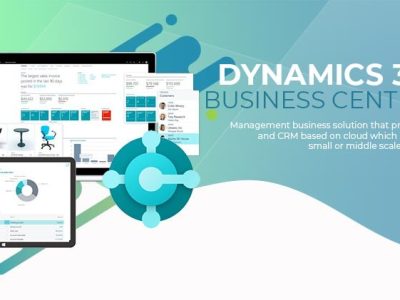Introduction
Microsoft Dynamics 365 is a powerful ERP and CRM solution that helps businesses streamline operations, enhance customer relationships, and drive growth. However, deploying Dynamics 365 successfully requires more than just software installation—it demands expertise, strategic planning, and ongoing support. This is where an implementation partner plays a crucial role.
A Microsoft-certified implementation partner ensures that your Dynamics 365 deployment aligns with your business goals, integrates seamlessly with existing systems, and maximizes return on investment (ROI). In this blog, we will explore the key responsibilities of an implementation partner and why choosing the right one is essential for success.
Why You Need an Implementation Partner for Dynamics 365
1. Expertise in Microsoft Dynamics 365
Dynamics 365 is a complex platform with multiple modules catering to finance, sales, supply chain, HR, and customer service. An implementation partner has in-depth knowledge of the system, understands best practices, and helps customize the platform to fit your unique business needs.
2. Strategic Planning and Assessment
Before implementation begins, a partner conducts a thorough business analysis to identify pain points, key requirements, and areas for improvement. They help create a roadmap that aligns Dynamics 365 with your long-term business strategy.
3. Seamless System Integration
Most organizations use various software applications for accounting, HR, and customer management. An implementation partner ensures that Dynamics 365 integrates smoothly with your existing systems, avoiding data silos and improving workflow efficiency.
4. Customization and Configuration
Every business operates differently. A good implementation partner customizes Dynamics 365 by:
Creating tailored dashboards and reports
Automating workflows
Configuring security roles and permissions
Developing custom modules if required
This level of customization ensures that your organization gets the most out of the platform.
5. Data Migration Without Disruptions
Migrating from legacy systems to Dynamics 365 can be challenging. An experienced partner ensures a smooth transition by:
Cleansing and structuring data before migration
Using automated tools for accurate data transfer
Performing rigorous testing to prevent data loss
6. Training and User Adoption
Even the best ERP system is useless if employees don’t know how to use it effectively. Implementation partners provide comprehensive training programs to ensure a smooth learning curve. They also address resistance to change by demonstrating the platform’s benefits.
7. Post-Implementation Support and Maintenance
After deployment, businesses need ongoing support for troubleshooting, system updates, and performance optimization. A reliable implementation partner provides:
24/7 customer support
System monitoring
Regular software updates and compliance checks
Choosing the Right Implementation Partner
1. Microsoft Certification and Experience
Ensure that your partner is a Microsoft Gold or Silver Partner with expertise in Dynamics 365. Check their track record, case studies, and client testimonials.
2. Industry-Specific Knowledge
A partner with experience in your industry understands specific compliance requirements and business challenges, leading to a more efficient implementation.
3. Scalable and Flexible Approach
Your business will grow, and so will your ERP needs. Choose a partner that offers scalable solutions and adapts to your evolving requirements.
4. Strong Support and Service Level Agreements (SLAs)
Check the level of post-implementation support they provide. Ensure they offer quick response times and dedicated customer service.
5. Proven Methodology
A structured implementation approach minimizes risks. Your partner should follow industry best practices, such as the Microsoft Sure Step methodology or Agile implementation.
Common Challenges in Dynamics 365 Implementation (and How a Partner Helps)
1. Resistance to Change
Employees often resist new systems. A partner helps by providing user-friendly training and change management strategies.
2. Poor Data Quality
Bad data leads to incorrect reports and decisions. Partners assist with data cleansing and validation before migration.
3. Unexpected Costs
Without proper planning, costs can spiral. A partner helps with budget forecasting and cost optimization to keep the project within limits.
4. Lack of Internal IT Expertise
Many businesses lack in-house IT expertise. An implementation partner bridges this gap with their technical knowledge and support.
Conclusion
A Microsoft Dynamics 365 implementation partner is more than just a vendor—they are a strategic ally ensuring a smooth, efficient, and successful ERP deployment. From planning and customization to training and ongoing support, their role is critical in maximizing the benefits of Dynamics 365.
Choosing the right partner can mean the difference between a failed implementation and a business transformation. Invest wisely, and your organization will reap the rewards of a well-executed Dynamics 365 deployment.
Frequently Asked Questions (FAQs)
Q1: How long does it take to implement Dynamics 365?
The timeline depends on the complexity of your business processes, data migration needs, and level of customization. On average, it can take 3 to 12 months for full implementation.
Q2: What is the cost of implementing Dynamics 365?
Costs vary based on licensing, customization, training, and support. A rough estimate for SMBs starts from $10,000 to $100,000, while enterprise-level implementations can be higher.
Q3: Can Dynamics 365 integrate with third-party applications?
Yes, Dynamics 365 supports integration with multiple applications like Power BI, Microsoft Teams, SAP, Salesforce, and industry-specific software using APIs and connectors.
Q4: What if my business needs change after implementation?
A good implementation partner ensures scalability by configuring Dynamics 365 to grow with your business needs. Additional modules and features can be added as required.
Q5: How do I ensure high user adoption after implementation?
User adoption improves with proper training, intuitive UI design, and ongoing support from an implementation partner. Engaging employees in the process early on also helps.







